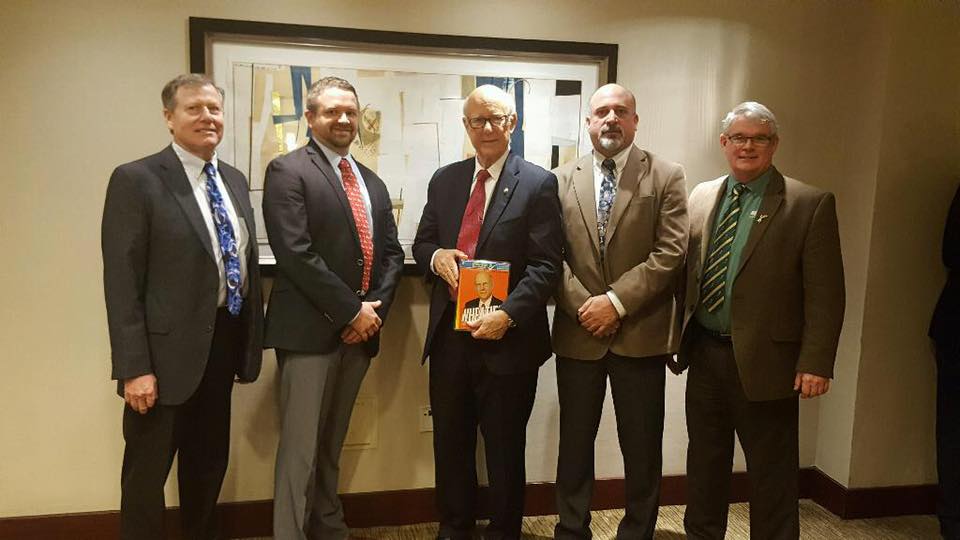U.S. Wheat Farmer Leaders Meet in Washington, DC
Wheat farmers came together in the nation’s capital last week to participate in joint meetings between the National Association of Wheat Growers (NAWG) and U.S. Wheat Associates (USW). These industry leaders discussed many issues facing wheat farmers and many of them visited their members of Congress to share long-term goals for the future of the crop and their farm livelihood.
Official business was called to order Tuesday, Jan. 31, and continued through Thursday, Feb. 2. USW and NAWG directors first met in joint committee meetings to learn more about plant breeding innovation and international trade policies that affect wheat farmers. USW’s individual committees also met, focusing on long-range planning, sanitary and phytosanitary issues affecting wheat trade, reports on hard white (HW) wheat production and export demand, and issues related to wheat quality.
An important topic at these meetings was the long-term status of the public-private partnership between the federal government and farmers supporting export market development activities. USDA’s Foreign Agricultural Service administers two programs that fund trade service, technical support and other activities that educate overseas customers about the value of U.S. agricultural products like wheat. The Market Access Program (MAP) and Foreign Market Development (FMD) have specific budgets that have not changed substantially since 2002; however, mandated cuts the past few years and inflation have reduced the effective value of the program budgets. Meanwhile, farmer contributions have increased.
USW, as a member of coalitions that advocate for MAP and FMD, explained to the farmer directors that more program funding is needed to continue serving our long-term customers and to introduce U.S. wheat quality and value to new customers.
“With new technology and farmers becoming more efficient, we are growing more and more wheat, even on less planted area,” said USW Chairman Jason Scott of Easton, MD. “But domestic consumption cannot keep pace with the production so the growing demand for wheat is overseas in the large population centers with rising disposable incomes.”
Scott said wheat growers need to join other farmers, ranchers and small agricultural businesses to voice support for increased MAP and FMD funding in the next Farm Bill to keep competing on an even playing field in the global market.
In other action, the USW board approved the organizations annual budget and elected the new 2017/18 board leadership for the upcoming fiscal year.


